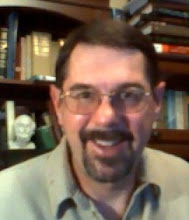I am re-reading the marvelous Space Trilogy of C. S. Lewis for the third time, and at present just over halfway through That Hideous Strength. I’ve always considered Perelandra to be the crowning work of this set, but now I’m almost convinced THS should hold that honor. This time through, I am taking the time to research thoroughly the many quotes and allusions, and it is as though the blinds in a dim room have been drawn, allowing the brilliance of the sun to illuminate and color the exquisite details, and to provide better perspective on the overall depth and breadth of Lewis’s genius in this masterpiece. In particular, I have noticed how much of the book deals with the beauty of love, especially married love. Lewis explicitly mentions in his letters that he was influenced by the poetry of Coventry Patmore, which is readily apparent from even a cursory reading of that amorous poet.
While researching some of these quotes, I was quite surprised to find how many of his critics consider Lewis to be a chauvinist, or sexist, or both. Sometimes I wondered whether they were even reading the same book! For example, in his epiphany at the end of the book, Mark has finally realized how shabbily he had treated his own gift:
He was discovering the hedge after he had plucked the rose, and not only plucked it but torn it all to pieces and crumpled it with hot, thumb-like, greedy fingers. How had he dared? And who that understood could forgive him? He knew now what he must look like in the eyes of her friends and equals. Seeing that picture, he grew hot to the forehead, alone there in the mist.
The word Lady had made no part of his vocabulary save as a pure form or else in mockery. He had laughed too soon.
It seems incredible that someone who wrote such effusive descriptions of the sanctity of marital love could be accused of chauvinism. Upon further reflection, however, it started to make sense in a world where that Hideous Strength still holds sway.
In a cosmology where I am the measure of all things, I must expand myself or my universe becomes small. Therefore any viewpoint that makes me appear weak, dependent, or fragile is anathema and must be rejected and refuted vigorously–even if it leads to being adored, honored, protected, and cherished.
In the christian economy, on the other hand, God is the measure and gives me value independent of my feeble efforts. This frees me from the cloying, desperate drive to define and prove my worth, and paradoxically the scope and honor of my role in God’s kingdom is inversely proportional to the size of my Self. I must decrease that He may increase. This is what the great writers like C. S. Lewis and, even more so, George MacDonald grasped and attempted to communicate.
However–and this is the crux–while I strive to diminish my own Self, I am never to attempt that for others. I can voluntarily offer my submission but never demand it from another. It should be obvious that this is the exact opposite of demeaning or subjugating another person and even precludes it, but it is precisely where the critics miss the point because they obsess over whether submission might include conformance to some role that God has defined. That was, in fact, Jane’s struggle throughout the book.
In a fallen world, strength will always gravitate to the hideous, and submission will be viewed as compulsory and demeaning. Those are the lessons Mark and Jane finally learned and were thus able at last to give and receive love. Not until then was Mark ready to appreciate and nourish the gift offered to him at the end by a Jane who was reborn, coming to him and
…going down all the time, down to the lodge, descending the ladder of humility.It’s a love story Hollywood will never write.

No comments:
Post a Comment